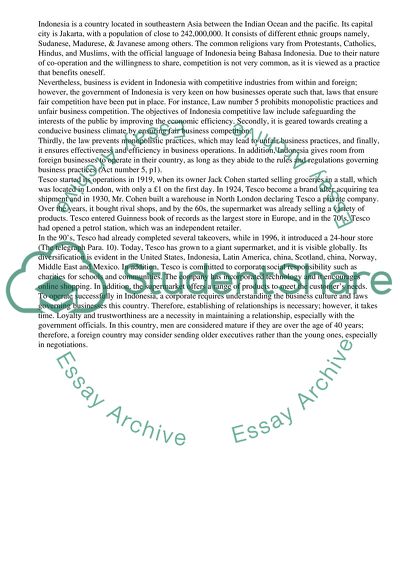Cite this document
(“Tesco in Indonesia Essay Example | Topics and Well Written Essays - 1500 words”, n.d.)
Tesco in Indonesia Essay Example | Topics and Well Written Essays - 1500 words. Retrieved from https://studentshare.org/business/1434027-tesco-in-indonesia
Tesco in Indonesia Essay Example | Topics and Well Written Essays - 1500 words. Retrieved from https://studentshare.org/business/1434027-tesco-in-indonesia
(Tesco in Indonesia Essay Example | Topics and Well Written Essays - 1500 Words)
Tesco in Indonesia Essay Example | Topics and Well Written Essays - 1500 Words. https://studentshare.org/business/1434027-tesco-in-indonesia.
Tesco in Indonesia Essay Example | Topics and Well Written Essays - 1500 Words. https://studentshare.org/business/1434027-tesco-in-indonesia.
“Tesco in Indonesia Essay Example | Topics and Well Written Essays - 1500 Words”, n.d. https://studentshare.org/business/1434027-tesco-in-indonesia.


